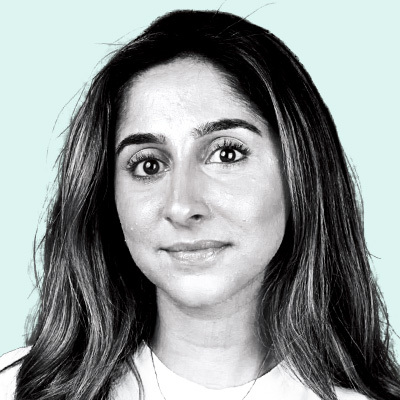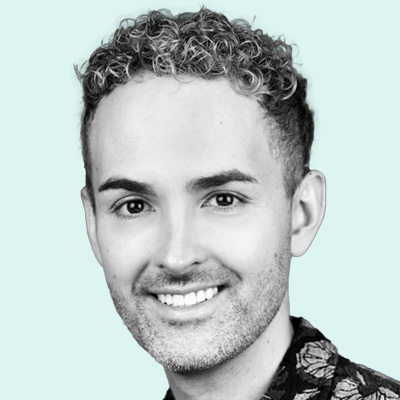CEO Agenda provides unique insights into how leaders think and lead and what keeps them busy in a world of constant change. We look into the lives, minds and agendas of CEOs at the world’s most iconic companies.
Founded in 1891 as a light bulb manufacturer, Philips has transformed itself into a health-tech leader in the 21st century. Its early work in lighting laid the foundation for the development of X-ray tubes, which became the cornerstone of its health care business.
The 134-year-old technology company faced perhaps the most significant crisis in its history following the 2021 U.S. recall of Philips breathing devices, including CPAP and BiPAP machines, owing to potential health risks. Roy Jakobs, who joined Philips in 2010, became CEO of the Dutch company in 2022, around the time of the crisis. Since then, he has helped bring the company into stabilization. While annual revenue has remained steady—reaching $19.5 billion in 2024—the company’s share price has risen a total of 81% since Jakobs took over. Though today the company’s share price remains below its 25-year average, Jakobs is committed to driving a long-term turnaround.
Alongside the recall, one of Jakobs’s first major actions as CEO was announcing a restructuring plan that cut 10,000 jobs—around 13% of the workforce—a move aimed at helping the company absorb settlement payouts.
Rising patient expectations—along with technologies like remote robotics, digital health platforms, and AI-driven machine learning—are rapidly transforming health care. In response, Jakobs is driving continuous innovation at Philips by enhancing hospital patient monitoring through IntelliVue bedside, wearable, and transport monitors—seamlessly integrated with the Philips Patient Information Center iX for real-time data access—and advancing Azurion image-guided therapy platforms to support minimally invasive procedures.
210
Philips rank on Fortune 500 Europe
“Explaining the why is very important,” he says. “It’s not about where you do innovation. It’s about the impact.” He emphasizes how crucial it is for companies to stay relevant in an ever-changing market, and to do so honestly and with integrity.
From boardrooms to soccer sidelines (he’s an avid sports enthusiast), Jakobs brings a grounded yet global mindset shaped by his (and Philips’s) Dutch heritage. Whether it’s planning his calendar around family events or sparking innovation across continents, Jakobs exemplifies what it means to lead with intent.
This interview has been edited for length and clarity.
Down to business
Fortune: Walk us through your career journey.
I started working at Shell, where I ran several operations. Then I was at Elsevier. When I joined, it was still a majority print-based business in the sciences, and it moved very rapidly.
That triggered why Philips invited me over in 2010, when lighting started to digitize rapidly and LED lighting was introduced. A major transformation from analog to digital light was starting, and Philips wanted to lead. I feel I can contribute to the heritage of strong global companies built in a small country, especially in key fields like energy, science, and health care.
How does the Dutch business style differ from that of other multinationals?
You need to think globally. There’s an outward perspective in how you engage with the world, respecting differences but also opportunities. That’s what the Dutch have been doing—going out, traveling the world, and grabbing opportunities.
The Dutch can also be very direct. I like clarity as a personal leadership style. There is value in speaking out, respectfully. There is also a part of Dutchness that is consensus-driven—you need to take many stakeholders into account if you want to do business. That’s a strength. We also think broadly—about patients, people, society, and sustainability. But at the same time, if you’re too consensus-driven, it can make you slower. That’s something to be mindful of.
You’ve led a major restructuring and significant repositioning of the business. What have you learned from the experience?
You need to be grounded in the reality you face, and if you restructure respectfully and with the right intent, you will gain support.
I had to significantly reduce headcount. In the same period, we drove our [employee] engagement score up by 12 points—because of how we did it. We were respectful and clear about why we did it and what we wanted to achieve, which was a simpler, leaner organization and to get Philips winning again.
It’s all about how you stay relevant and how you do it together with the audience you serve. Explaining the why is very important. It’s not about where you do innovation—it’s about the impact.
“There’s an outward perspective in how you engage with the world, respecting differences but also opportunities. That’s what the Dutch have been doing—going out, traveling the world, and grabbing opportunities.”
Roy Jakobs
Philips is known for consumer-facing innovation—how have you approached its communication strategy?
As a consumer brand, you have a wide reach with billions of consumers. In health care, patients are more focused on getting the best care than on the brand itself.
I’ve been refocusing the company on driving towards delivering better and more care—because the challenge in health care is only getting bigger due to the growing gap between demand and supply. I also engage with the government and relevant stakeholders on the payer side. We’ve been in health care for 100 years and are known as a trusted partner. While consumer branding differs from B2B, our legacy and ongoing activities continue to build our presence.
With challenges in China and global trade, where is your focus as CEO, and how do you navigate these tensions?
The system is under pressure as government funding shifts to energy and defense, so we need to become more efficient due to reduced health care support.
There are big differences globally—countries like the U.S. spend 20% of GDP and need efficiency, while others like Indonesia are still building up. China has been challenged since COVID because its economy has not been back in full force. The country is strengthening, but it is still not back to where it was. The U.S. still has strong health care demand and is looking for solutions.
Tariffs are also something we are dealing with. COVID made us aware of constraints, especially if you have a too long or too diversified supply chain. Since COVID we started to regionalize more. You need to be local.
How do you think we can address the productivity gap between Europe and the U.S.?
Philips is a big European company. We drive many activities in other parts of the world.
You need to have financial capital streams that support talented startups, especially in tech. It’s easier to access capital in the U.S. than in Europe. We need to [fix] that.
If you want to remain competitive, you need to have an energy cost that is competitive globally. Europe is expensive because of its heavy reliance on outside sources, including Russia. We need to strengthen our energy infrastructure.
We’ve been advocating for appropriate AI regulation that supports but does not overburden it.
Being productive
What’s your morning routine that sets you up for the day?
I get up early, play sports if I can. I want to be not only a CEO, but also a father and good husband, so careful planning is essential.
I plan my time, especially when traveling, so I can be present. I carve out time for my sons’ soccer matches and make sure to show up when it matters. A big part of staying connected, whether with customers, stakeholders, or family, is clear communication.
Coffee or tea?
I studied in Italy, so I start with a cappuccino and then shift to regular coffee or espresso. I also love tea.
Tell us a bit about your sports interests?
I like sports for many reasons. I get energy out of it, and I also like the social aspect of sports. I play soccer, tennis, and also run. I like to learn from sports, with the team.
I also think [sports] is very important, especially since we’re a health care company. So [we should] lead by example. There’s value in being fit for the energy that we need for the daily grind.
Do you have a set end to your workday? Are you strict about stopping work, or do you tend to continue with emails and tasks into the evening once you’re home?
I’m quite flexible. Running a global business means that sometimes I need to be early for China or Asia, or late for the U.S. Work and personal [life] are intertwined.
I appreciate spending time with my family on Friday nights, especially cooking dinner together.
Getting personal
What apps or methods do you use to be more productive?
I use my iPad as my notebook, and that works for me.

Who is on your personal board?
I have a broad network of people whom I can get inspiration from. Some are friends, my professional coach, my sister. Sometimes people assume that a CEO knows everything, but I’m the first to admit if I don’t. That’s why I have a team.
As a consumer, what is your favorite company and why?
Apple. I love the combination of design and the user focus.
What is your favorite cuisine to either cook or eat?
Italian. I love eating and cooking. Living in Bologna, I learned to appreciate Italian cuisine. Simple recipes yield magnificent outcomes—we should do the same in business.
CEO Agenda provides unique insights into how leaders think and lead, and what keeps them busy in a world of constant change. We look into the lives, minds and agendas of CEOs at the world’s most iconic companies. Dive into our other CEO Agenda profiles.














